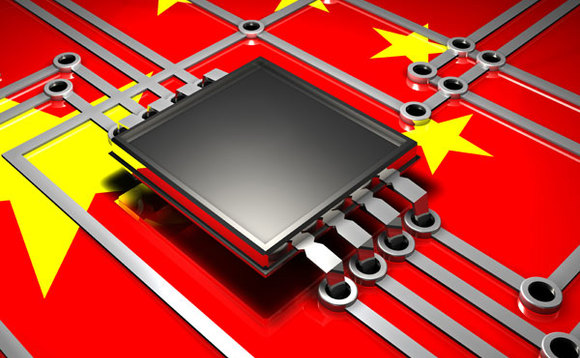
China hardware start-ups: Maker's mark

Best known as the go-to location in China for cheap electronics manufacturing, Shenzhen is now emerging as a Silicon Valley for hardware. Can these start-ups get traction with software-focused VCs?
Frank Wang, the 35-year-old founder of Chinese drone manufacturer DJI, is a classic example of a "maker." He got his first remote-controlled toy helicopter at 16, crashed it, and started playing around with the parts inside.
DJI came into being in Wang's dorm room at Hong Kong University of Science & Technology in 2006. An electronic engineering major, his final-year project was building a mini-helicopter drone. He obsessed over the stabilized flight control system, skipping classes to perfect his design. The drone crashed during a test flight before the presentation, but his efforts weren't wasted.
Wang relocated to Shenzhen, the light manufacturing hub of southern China, and set about building his business. The flight control system was DJI's first product. By 2012 DJI had developed all the components for a complete drone, and the Phantom, a rotor-powered device carrying a high-definition camera, was released in January 2013. DJI is now the world's biggest consumer drone maker by revenue, with an estimated 70% of the market share.
Earlier this month the company received $75 million in funding from Accel Partners at a reported valuation of $8 billion.
"DJI is a great example of a Chinese company that's creating a new category. It is an innovator, coming up with the initial concept and starting the market," says Vasant Natarajan, a partner at Accel. "There are so many opportunities for the company because it is based in Shenzhen. It has access to local market resources in that manufacturing zone. Other global markets have yet to master this model."
Maker communities and incubators are sprouting throughout Shenzhen, tapping into the rich DIY culture. With the emergence of internet-of-things (IoT) technologies, it is hoped that the hardware talent found in these communities can translate into new prototypes, giving birth to a new breed of Chinese start-ups along the lines of DJI.
For venture capital firms that have long seen software as the key ingredient to their China investment thesis, Shenzhen is an opportunity but also a challenge. Are these investors able to adapt their strategies and become consistent and successful backers of hardware businesses?
Tech metropolis
A sprawling city of more than 15 million people, Shenzhen was China's first special economic zone. Foreign investment gave it head-start in manufacturing and the past 35 years have seen substantial progress. Assembly lines produce components and do final assembly for international electronics brands such as Apple and Samsung at a scale, speed and quality that still justifies the rising costs.
The evolution of the smart phone has also, to a certain extent, democratized hardware. Ten years ago, building small-form, high-performance electronic goods was a challenge. But the emergence of powerful sensors, mobile chip sets, and better battery technology has made production more cost-effective. Sophisticated hardware can be developed in a dorm room.
"Shenzhen is the ecosystem for hardware start-ups," says Bunnie Huang, a Singaporean hacker, who is also a mentor at Shenzhen hardware-focused accelerator HAXLR8R. "The existing supply network provides an extremely liquid supply of parts and services, which means free-market forces drive down prices for basic resources. Almost any process you need to fabricate a product is within two-hour drive of Shenzhen, which facilitates the depth of design vocabulary available to a hardware start-up."
The districts of Futian and Huaqiangbei are home to a massive components emporium where traders sell circuit boards, bolts and screws that are the foundation stones of electronic gadgets. A dozen multi-story buildings are filled with wholesale shops tied to different factories, enabling makers to find the components they need. In the online space, Seeed Studio sells more than than 700 open source hardware components to makers and inventors globally.
Cyril Ebersweiler, a partner of SOS Venture, founded HAXLR8R in Shenzhen in 2012, basing the model on different skill-sets drawn from traditional accelerators that could support hardware start-ups.
The firm, which recently rebranded as HAX, provides seed funding and 111 days of intensive prototype development and refinement. It helps start-ups sell products and raise capital through crowdfunding platforms such as Kickstarter and Indiegogo, as well as giving them the chance to pitch to potential investors from the US.
"Crowdfunding has been very important for start-ups, which wouldn't necessarily be able to raise VC funding due to investor ignorance. This was certainly the case 2-3 years ago but it's now's getting better," Eberweiler says. "Selling the products on Kickstarter can generate tens of millions in revenue without any equity dilution. Then they can take venture capital for further growth. In the early days, revenue is the best thing you can have as a start-up."
China's pirated goods purveyors, collectively known as "shanzhai," are also bringing benefits to the hardware start-up community. Entrepreneurs who learned their trade in large factories are trying to build their own brands and introducing supply chain innovations. They tend to focus on "appcessories" that extend a smart-phone's capabilities, robot technology ranging from vacuum cleaners to drones, and medical or healthcare-related apparatus.
The target market is typically business-to-business rather than business-to-consumer, although the likes of HAX do help start-ups broaden their focus in order to generate revenue from the consumer mass market.
This initial concentration on B2B is one of the reasons why venture capitalists have struggled to understand the space. Huang says he advises many hardware start-ups to shun VC funding because these investors do not grasp hardware's full potential and their motivations are not aligned with those of the entrepreneur.
"Hardware is a buy-and-sell business," he explains. "Nobody is going to acquire or invest in you because you have 10 million users but your product is underpriced and so you're losing $20 for every item you deliver. However, internet start-ups can get away with that - the actual cost to keep users is unclear. You might be acquired for billions of dollars if you can prove you've got the most eyeballs in a particular niche."
Jenny Lee, a managing partner at GGV Capital, agrees that hardware is a "tough space to invest" as it requires a deep knowledgeable of technology. This is especially important because hardware is capital intensive - VCs must be prepared to reserve more capital and help start-ups secure other forms of funding.
"While the sector is considered hot, not that many companies get funded in the Series A to Series C rounds," Lee says. "The ones that secure financing tend to be larger-sized companies that already have products selling in the market, or are already are profitable."
Revenue is therefore a key consideration and a number of accelerators have been set up to help hardware companies commercialize their technology. Brinc, which is based in Hong Kong and has offices in Shenzhen and Guangzhou, focuses on connected hardware under IoT, encompassing wearables, smart devices and products for smart cities. It wants to support companies that not only make money by selling products, but open up platforms that form the basis for other technologies.
"People don't define connected devices and smart devices very well today. A ‘connected' device is simply a device that connects to a mobile phone. This is what most of the manufacturers are doing in China. There is a Bluetooth or Wi-Fi chip that turns the device on and off, and does some basic data tracking. It's not really smart," says Manav Gupta, founder and CEO of Brinc.
Convergence point
For the likes of GGV, Qiming Venture Partners and Shunwei Capital Partners, the driving factor is the convergence of hardware and software. They are particularly focused on start-ups with products that play a functional role in a consumer lifestyle and appeal to those who are no longer impressed with the fact of the technology itself. Traditional industrial hardware technology is therefore not a target.
Qiming is about to close on three hardware-related deals, having already backed three companies - manufacturing drones, sport cameras and home appliances - in the past 12 months. Kuantai Yeh, an IT-focused partner at the firm, says the six companies are pre-revenue, but all have proven concepts in product designs of 3D printing. Those smart hardware companies have an operating system (OS) integrated inside, and also connect with the smart-phones.
Given the products have yet to launch, there is no desire to seek capital through online crowdfunding platforms. "The smart hardware business is very competitive. When you tell the whole world about your plans you give them an opportunity to copy your products," Yeh says. "If you want to sell a camera for RMB100, your rival would release a model priced at RMB49 with one more additional feature."
Shunwei has invested over 30 hardware start-ups since inception; one third are based in Shenzhen and the others are in nearby cities. The VC firm was co-founded by Lei Jun, who is also the founder of domestic smart phone maker Xiaomi. It often invests in Xiaomi affiliates in partnership with the parent company.
"We call them ‘Xiaomi ecosystem investments.' Xiaomi provides a range of support to these start-ups, including on product designs, financial operations and marketing," says Tian Cheng, a partner at Shunwei. He cites iHealth, a healthcare electronics specialist, as an example.
Qiming, GGV and Banyan Capital also dip into the Xiaomi ecosystem. GGV's firm recently invested in three Chinese IoT players, of which two - headphone designer 1More and portable battery maker Zimi - are affiliated to Xiaomi. Through this affiliation, the start-ups can not only create an enhanced user experience by integrating their hardware with Xiaomi's platforms, but also draw on a wealth of data.
"Xiaomi has built up a strong brand, a big installed base of users and this makes it especially suitable for products that can be easily connected, displayed or controlled by Xiaomi phones. This includes wearables and smart home devices, which can be sold in large quantities for a single model, leveraging Xiaomi's design and supply capability," GGV's Lee says.
Also as affiliates rather than captives, the likes of Zimi and iHealth are free to forge ahead as independent operators once they have expanded their product portfolios.
Several other Chinese technology giants, including JD.com, Alibaba Group and Baidu have joined Xiaomi in the hardware space. It has also become a target for traditional telecom devices manufacturers like Huawei, TCL and Midea. They have ambitions to create their own ecosystems, bringing together online and offline technologies in order to engage with consumers and create sustainable business models.
"Everyone wants to get into the hardware space as an ecosystem player. It is much easier for hardware start-ups to get funding in the wake of the IoT boom," says Junhao Hu, CEO and founder of Darma, which manufacturers smart cushions that monitors sitting posture and stress levels. The firm started out producing bed sheets but switched to cushions while in the HAX program. "As a hardware start-up, selecting the right products to manufacture is more important than how we manufacture them."
Crowded market
As makers get more traction on their products, the smart device market is becoming crowded, with dozens of new releases every day. Between 10 and 20 bracelets or smart watches with similar activity-tracking functions are currently available in China. The numbers are similar for robotics, smart cars and drones.
At the same time, the line between hardware and software is blurring - hardware captures detailed data from users and software is required to deliver the results in a form that can be monetized. This is encouraging the development of integrated start-ups, which in turn require management teams with a broader range of skill-sets. As such, barriers to entry will become higher.
"Ultimately when we look at the investments in the smart hardware companies, the core value is in their software technology, because they don't do the manufacturing or design integrated circuits. It is similar to Apple - they actually have a very low value on the manufacturing side, it's more in the software and service ecosystem," says Qiming's Yeh.
Intelligent hardware is still in its nascent stages and the market is still waiting for true leaders to emerge in various segments. In the drone space, for example, the range of applications is enormous, spanning consumer, industrial and military users. DJI may be the largest Chinese drone manufacturer, but it is not alone. In addition to Qiming's recent investment, Chengwei Capital Partners has XAircraft Aerial Solutions, while GGV supports EeHang.
Focusing on their sweet spot - the nexus of consumer and technology - venture capital investors want to penetrate deeper into the hardware market, align start-ups with consumer audiences, and deal with regulators to secure approvals where necessary. The ultimate objective is mass adoption.
Latest News
Asian GPs slow implementation of ESG policies - survey
Asia-based private equity firms are assigning more dedicated resources to environment, social, and governance (ESG) programmes, but policy changes have slowed in the past 12 months, in part due to concerns raised internally and by LPs, according to a...
Singapore fintech start-up LXA gets $10m seed round
New Enterprise Associates (NEA) has led a USD 10m seed round for Singapore’s LXA, a financial technology start-up launched by a former Asia senior executive at The Blackstone Group.
India's InCred announces $60m round, claims unicorn status
Indian non-bank lender InCred Financial Services said it has received INR 5bn (USD 60m) at a valuation of at least USD 1bn from unnamed investors including “a global private equity fund.”
Insight leads $50m round for Australia's Roller
Insight Partners has led a USD 50m round for Australia’s Roller, a venue management software provider specializing in family fun parks.







